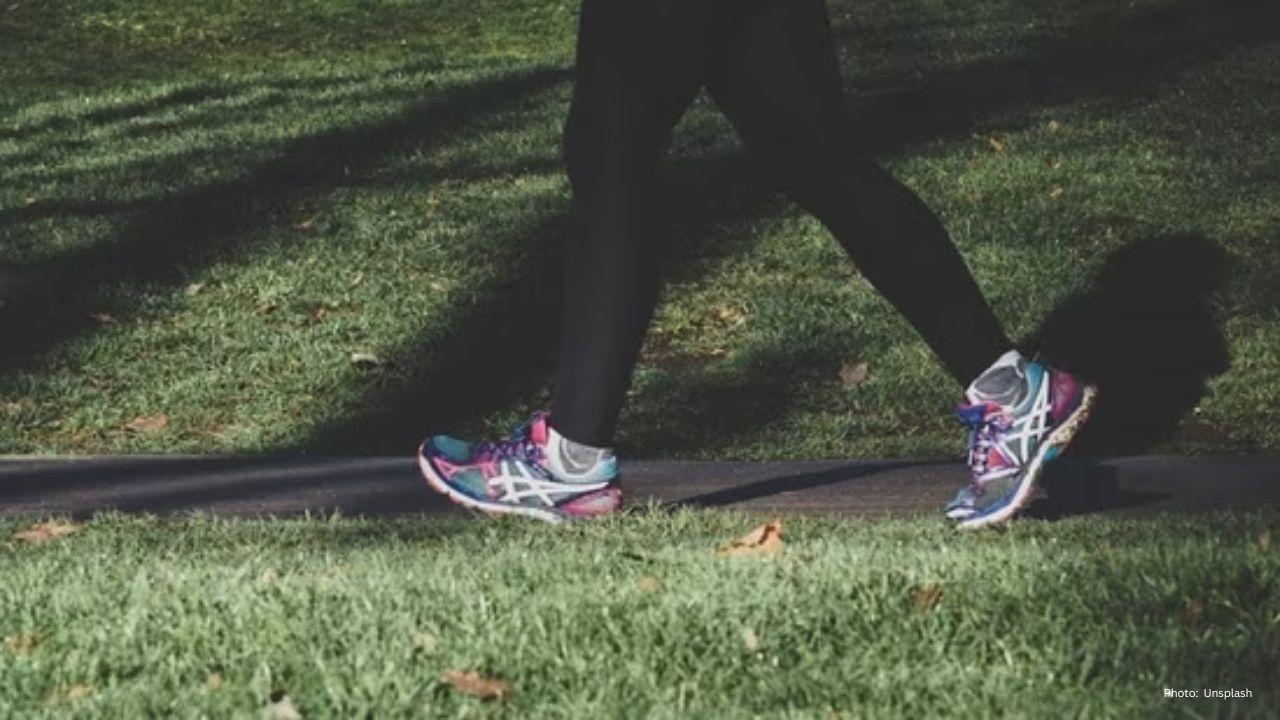
Post by : Saif Nasser
Walking remains one of the easiest forms of exercise, requiring no equipment or financial investment. Multiple studies highlight that walking plays a crucial role in overall health and contributes to long-term fitness. Dr. Saurabh Sethi, a board-certified gastroenterologist trained at AIIMS alongside prestigious institutions like Harvard and Stanford, has recently shared insights on how a mere 10 minutes of walking after meals can lead to significant health benefits. This recommendation has gained traction due to its simplicity and effectiveness across all age groups.
Dr. Sethi elaborated that after dining, the body goes into an active phase of digestion, where food breaks down, glucose enters the bloodstream, and hormones are released. Engaging in a short walk after eating aids this process, ensuring that the body copes more efficiently with the intake. He recommends a stroll lasting between 10 to 12 minutes post-meal, emphasizing that a moderate pace is sufficient to reap the rewards.
One substantial upside of this habit is the reduction of blood sugar spikes. Remaining seated or lying down post-consumption causes sugar to enter the bloodstream rapidly. Conversely, movement facilitates a gradual release of glucose into the muscles, potentially lowering spikes by up to 30%. This method also results in the release of lesser amounts of insulin, promoting a more stable energy level and decreasing inflammation. Research indicates that post-meal walks can rival the effectiveness of certain medications in regulating glucose levels.
Moreover, Dr. Sethi pointed out that gentle walking enhances insulin sensitivity. When muscles engage, they extract glucose from the bloodstream, reducing the need for insulin. This boosts the overall metabolic function, benefiting those with diabetes or those at risk. A healthy insulin response also plays a protective role in long-term heart health and metabolism.
Walking post-meal likewise improves digestive health. The physical activity activates the digestive system and stimulates the vagus nerve, promoting efficient movement of food through the gastrointestinal tract. People may find relief from feelings of heaviness, constipation, and enjoy smoother digestion as the body performs optimally when in motion.
Bloating can be a common issue after meals. Gas can accumulate when digestion slows down, but a brief walk helps release trapped gas, alleviating discomfort. Dr. Sethi notes that this simple strategy may benefit those with digestive disorders such as irritable bowel syndrome, reducing the need for medication.
Additionally, these walks can mitigate instances of acid reflux. Lying down or remaining still often exacerbates the condition, while walking helps to move food smoothly through the stomach, decreasing the likelihood of experiencing heartburn. Dr. Sethi asserts that even a short 10-minute stroll post-dinner can yield significant improvements.
Improved triglyceride levels is another benefit worth mentioning. Triglycerides typically rise in the bloodstream after fatty meals, but walking aids in processing these fats more effectively, thereby lowering future risks for heart disease, fatty liver, inflammation, and obesity. Dr. Sethi describes this habit as a small exercise that provides significant benefits.
Additionally, regular walking post-meal can enhance sleep quality. When blood sugar is stabilized and reflux is minimized, the body can rest more efficiently. Individuals may notice falling asleep more quickly, enjoying longer rest periods, and waking up rejuvenated. A well-functioning digestive system can positively impact hormones, appetite, mood, and decision-making the following day, particularly benefiting those who dine late or struggle with sleep issues.
Dr. Sethi recommends that people consider walking after lunch or dinner, though it can follow any substantial meal. Consistency in this habit counts for more than the pace or intensity. Engaging in even a slow daily walk can lead to powerful health outcomes. Many mistakenly believe that significant health improvements necessitate rigorous workouts or strict routines; however, this small change can profoundly enhance overall wellness.
Nonetheless, it’s essential to note that the shared information is for educational purposes and should not replace professional medical advice. Individuals with serious health conditions should consult their healthcare provider before altering their lifestyle or exercise practices. Yet, for the majority, taking a 10-minute stroll after meals serves as a harmless but highly advantageous practice that fosters digestion, heart health, sleep, metabolism, and overall bodily function.










Jamaica's McClaren Resigns Following World Cup Qualifying Draw
After a goalless draw with Curacao, Steve McClaren resigns as Jamaica's coach, leaving them to vie f

Daryl Mitchell Tops ICC ODI Rankings, Major Player Movements Noted
Daryl Mitchell ascends to the No.1 ODI batter position, with notable improvements from players in va

Bangladesh Women's Cricket Tour to India Postponed Indefinitely
The Bangladesh women's cricket team's tour of India in December has been postponed indefinitely due

Bangladesh Announces Vice-Captains Ahead of Ireland Matches
Bangladesh Cricket Board appoints Mehidy Hasan, Najmul Shanto, and Saif Hassan as vice-captains for

England Aims for Breakthrough in Series Opener Against Injury-Hit Australia
As Australia struggles without key fast bowlers, England seeks a historic win in the Ashes opener in

Shubman Gill Heads to Guwahati, Yet Second Test Participation Uncertain
Shubman Gill will travel with the Indian team to Guwahati, but his neck injury casts doubt on his av